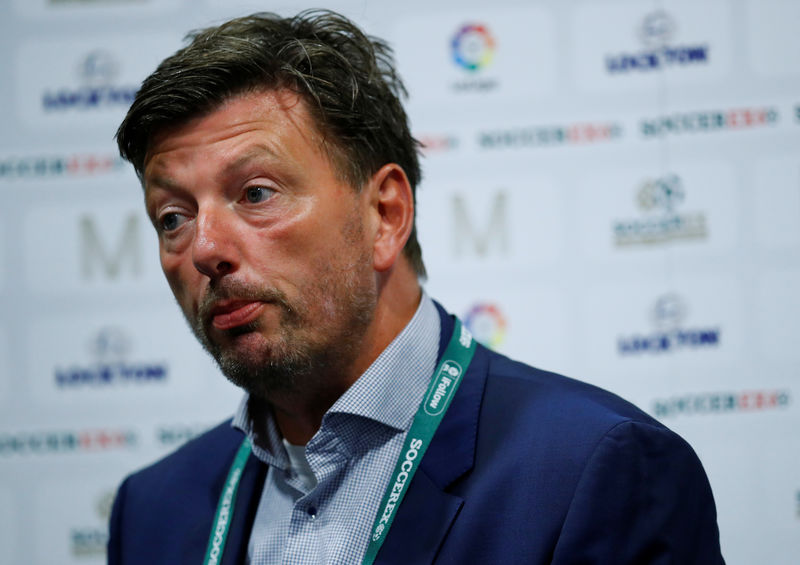By Simon Evans
MANCHESTER, England (Reuters) - In the wake of the record-breaking transfer window, European league officials say they want to see regulations brought in to address the increasing economic imbalances in the game.
The European Professional Football Leagues (EPFL) described the recent transfer window, which included Brazil talisman Neymar's world record 222 million euro (£203.01 million) move from Barcelona to Paris St Germain, as "characterised by overspending by clubs and inflation in players' salaries".
The organisation, which represents 24 national leagues, said in a statement that "there is a pressing need for the football governing bodies to intervene and implement measures aimed to create a more fair and balanced financial system for professional football."
Dutch league chief executive Jacco Swart told Reuters in an interview at the Soccerex convention in Manchester that despite talk of dealing with the financial gulf in the sport, the situation was worsening.
"I think if you look at the numbers that are being paid over this last summer window it shows that the differences between the biggest clubs in European football and all the others, it looks more that it is increasing rather than that the gap is getting smaller," he said.
"I think that could be a danger for European football as a whole in the long term," added Swart.
Swart, like a number of league officials, wants to see clubs from outside Europe's elite get a greater share of Champions League revenue but he also believes there are broader problems that need tackling.
"There are more strategic issues to address and discuss with each other. It is about club ownership, it is about the European club competitions, it is about Financial Fair Play and these are all, more or less, related to each other," he said.
"It is also about how many players are you allowed to contract? Is it unlimited, as it is today, or are we going to put limits on that to make a fair balance?"
SQUAD LIMITS
UEFA president Aleksander Ceferin has floated proposals for squad limits, a 'luxury tax' and changes to the transfer system to stop big clubs hoarding players and to stem the growing gap between rich and poor clubs.
Claus Thomsen, CEO of the Danish League, told Reuters that big money transfer deals are less of a problem than the overall need for better regulation and governance.
"I’m less concerned about the sums. I am more concerned that there is sound governance and there are no creative models of financing transfers, that we have a level playing field of regulations," he said.
"There will always be a market and there will always be differences, the differences themselves are not the problem, but if not a level playing field where you can use the advantages as a smaller league or as a mid-size club, that you are so much more efficient pound-for-pound than the big ones, if that advantage is taking away then it is a serious issue.
"Then the smaller to medium-sized clubs won’t bite the big ones in the heels and the competition will become uninteresting," he added.
Thomsen said that while there was no desire to return to the 1970s and simple knockout European club competitions, European soccer's governing body UEFA needed to look at how to stop the Champions League having the same clubs in the final stages.
"It is harder and harder to break into the elite and that is not a good thing for football... It is not even (good) for the club tournaments because they will end up being interesting for fewer people," he said.
The Dane said that while new investors should be welcomed, the game needed to tighten up its regulations on ownership and the financing of teams.
"The important thing is that we invent and enforce measures that do not allow state influence, that do not allow influence on more than one club in more than one competition that does not allow creative means of financing which is unfair.

"I think that is where the real value is. The real value is not buried in keeping investors out of football," he said.